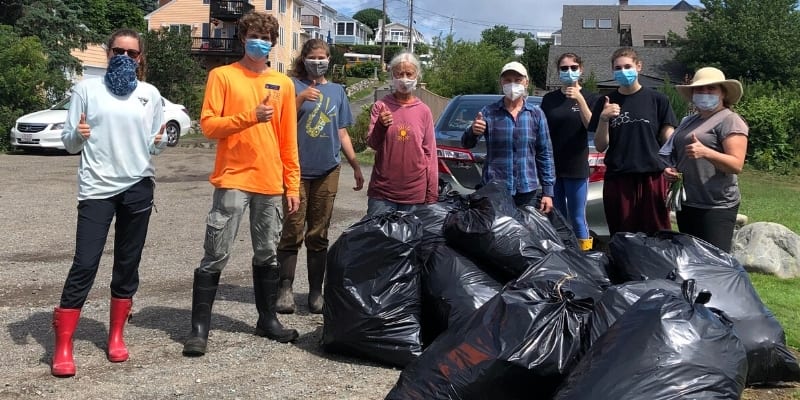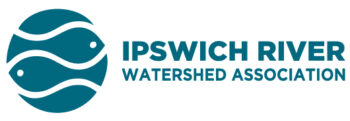
Grace Evans and Adam Clark (first and second on left) lead volunteers in pulling invasive Pepperweed from the Great Marsh before it can see and spread further.
Each summer the Great Marsh has been under an attack by a well-designed intruder. Perennial Pepperweed is an invasive species native to Europe and Western Asia that was accidentally introduced into North America’s coastal marshlands. For the last 14 years, there has been an organized effort to remove Pepperweed from our ecosystems and eliminate their negative effects on native species. Liz Duff was the first local scientist to recognize the threat posed by this invader and single-handedly mobilized the current citizen-led coastal monitoring and control effort. This year her work has been continued in her honor after her recent passing. Two of Liz’s former volunteers, Grace Evans and Adam Clark, have been dedicated to the removal of Pepperweed this summer. Three days a week the pair venture out to different coastal marsh locations in Ipswich and manually pull the weeds. They are guided by an ARC GIS collector app that maps out where the weed has been located and pulled in past years. This is a massive group effort that is the product of many years and Liz’s unwavering dedication.
While the application of herbicide is used in some areas, hand pulling does the least amount of damage to the surrounding ecosystem. It is most effective to pull the plants in July before they can spread their seeds. You can spot this plant by its characteristic small, four-petal white flowers that grow in dense clusters. These plants are usually 2 to 5 feet tall with alternating leaves but resemble a common weed when young. Pepperweed can grow in dense stands that outcompete native plants and alter the marsh ecosystem and organisms that live there. It is important and difficult to stop the spread of this species but with the help of organizations, community members, and dedicated scientists like Liz Duff, we can help keep the marshes healthy. The Ipswich River Watershed Association and the Mass Audubon have been organizing group pulls with volunteers to help make a greater impact. If you identify this plant or are interested in volunteering please email [email protected].
